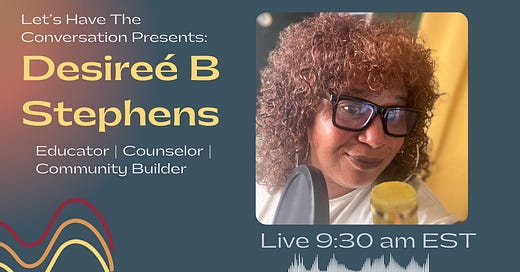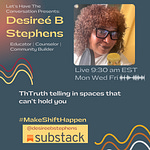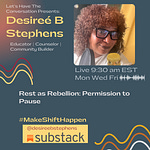Welcome back! We made it to Day 33, and today we’re talking about one of the most powerful tools in liberation work: storytelling.
Facts inform, but stories move people. They hold memory, preserve history, and connect us in ways data never can. Storytelling is one of the oldest methods of knowledge-sharing and resistance. And yet, supremacy culture has done everything in its power to strip marginalized communities of their stories—rewriting, erasing, and distorting them to maintain control.
Liberation work demands that we take those stories back.
Today, we explored how storytelling creates emotional connection, preserves ancestral wisdom, and amplifies the voices too often silenced.
If you’ve been struggling with how to engage in meaningful conversations about liberation, storytelling is your starting point.
Lessons & Community Input
Today's discussion deepened our understanding of storytelling as a tool for justice. Some key takeaways:
Stories disrupt supremacy culture’s control over history, allowing us to reclaim narratives that have been erased or distorted.
We all have a story worth telling, but systemic oppression has made many of us believe otherwise.
Sharing personal experiences creates emotional connections that facts and figures alone cannot.
Liberation is impossible without amplifying marginalized voices. Who tells the story matters.
History is not just something that happened—it is alive in us right now. We are part of a lineage of resistance, and our stories carry that power forward.
This is the work. And if today’s discussion resonated, now is the time to deepen your commitment to the practice of storytelling for liberation.
Upgrade to a paid subscription for exclusive content, extended reflections, and tools to help you integrate storytelling into your activism and community-building. If finances are a barrier, email Scholarships@DesireeBStephens.com for assistance.












